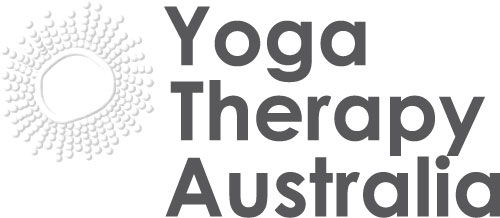Saraswathi Vasudevan
10 day Training
Stand-Alone Course as well as Foundational module with Yogic Anatomy, Physiology and Psychology (Nov 2015) for entry to Post Graduate Diploma in Yoga Therapy June 2016*
Between 14 – 28 March 2016 Exact dates (tbc)
Venue to be confirmed
The Foundations of Yoga Therapy course is a special and highly practical course that combines content from our regular Foundations of Viniyoga course with material from the Applications of yoga and Observations (Module one of the Post Graduate Diploma in Yoga Therapy (YTA) “PGDYT”) . It is this immersion in the Foundations of Yoga Therapy that is so essential to the competent practice of yoga therapy. Completion of this course along with the Yogic Anatomy, Physiology and Psychology (Mod 2, Nov 2015) enables participants to join the current PGDYT intake which continues in June 2016 when when we commence our study of the pathologies with live case studies.
Many courses now offer guidelines for the therapeutic application of yoga for specific conditions, but without the foundational knowledge such as the skills of observation and assessions such application can only become prescriptive. Our focus is viniyoga – the intelligent application of yoga for therapeutic purposes. Guided by the teachings of T. Krishnamacharya – yoga must be the prescription of personal practices according to individual needs,
Giving what is appropriate is viniyoga
By an appropriate person,
to an appropriate person,
at an appropriate time,
in an appropriate manner.
It is not casual or routine.
not by anybody to everybody.
Not anything and everything.
It is unique, highly individualised and very specific.
You can only give what is inside you
This is the first lesson in viniyoga ….
Principles of Yoga Therapy Vol 1 at p. 309
Dr N. Chandrasekaran MBBS (Dr NC)
Learning and practicing yoga is one thing, and the application of yoga on others is entirely different. This difference between yoga and the application of yoga has not been well stressed. This has resulted in the same yoga techniques that teachers have learnt being applied on other people without giving due consideration to the constitutions of the individuals, their capability, their requirements, and without individuality in the teaching methodology itself.
Yoga, from its inception, is very clear that it is intimately personal and deeply experiential. Only the practitioner can experience his or her yoga. On the other hand, yoga has innumerable principles, many potent techniques and tools and a rich science inculcated in it. They have been nurtured and strengthened by an uninterrupted lineage of great masters in yoga, including T. Krishnamacharya. In the application of yoga, yoga teachers apply these principles on others to bring out the specific, pre-contemplated and appropriate response.
Yoga recognizes five different types of application, namely, Sristi krama, Siksana krama, Raksana krama, Adhyatmika krama and Cikitsa krama. Each type of application has its own set of principles behind, and within, its operation so as to make the application most appropriate, effective and intelligent. Thus, each type of application is unique in its own way.
Learning the foundations of viniyoga, the applications of yoga and the art of observation of the individual, is fundamental to the skills of the yoga therapist.
Course focus:
- In depth analysis of yoga philosophy and its application in practice
- Fundamentals and basic concepts of yoga therapy: Complementary system, Ahimsa, The breath (the bestower of health), the Body (the immediate tool)
- The important principles of practice of asana, meditation and other tools of yoga and their role in yoga therapy
- The classical way of practicing asana, the function of asana and the principles behind the modifications of asana for specific outcomes
- The principles behind sequencing of asana, pranayama and meditation practice – the key that opens to the full efficiency of these tools
- The features, and study of each type and level (introductory, middle stage and advanced) of each of the five different applications of yoga
- Observation and discussion of important joints of the body.
- Examination methodologies: observation, palpation and examination workshops of the joints
All material will be dealt with from a therapeutic perspective and the course will be about 80 hours duration.
This course is a stand-alone course suitable for yoga teachers, health practitioners and all committed practitioners of yoga. It is strongly recommended for everyone who is or has been studying or practising the therapeutic application of yoga.
Post Graduate Diploma in Yoga Therapy (PGDYT)
This course is a co-requistie with Yogic Anatomy, Physiology and Psychology Module 2 (Nov 2015), for those wishing to join the Yoga Therapy Australia Post Graduate Diploma in Yoga Therapy (YTA) (“PGDYT”) (accredited by the AAYT) which will continue with Module 3 from late May/June 2016. Please note due to Dr NC’s other international commitments there will be further intake until 2017 .
Full details and Registraiton will be available soon.


